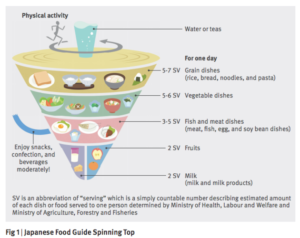ATTENTION! Researchers in Japan proved that if you wanna be healthy, you should eat tonnes of carbs. At least that’s what Huffington Post, Elite Daily (one is copy paste from the other btw) and a few other media are trying to convince you based on the article title alone. But does this even make sense? After all, according to American Journal of Clinical Nutrition, increasing consumption of carbohydrates among US population is leading to increase of type 2 diabetes.
So what exactly does the research say? Captain Diet Myth Buster is here to the rescue!
Its is quite interesting that if we look simply look at the US National Institute of Health, it actually refers to the Japanese study as evidence of low carb diet effectiveness on health, particularly on reducing the risk of type 2 diabetes. NOT a high carb diet. So how come the very same research could be considered both as a High Carb and Low Carb at the same time by different people? Yes, you are reading it correctly. Same research, some people say its high carb while some others say its low carb.
1. What is the actual quantity recommended in the study?
Well, first of all, if you look at the Japanese Dietary guideline below:

It does seems to show that you must eat a whole lot of carbs, i.e. 5 – 7 serving of grains compared to 5 – 6 servings of vegetables. However, if you actually spent the time reading the actual research (not from huffpo or elitedaily), you will find that the Japanese definition of 1 serving of grains (carbs) is abut 40 gr while 1 serving of vegetable is 70 grams. I.e. the amount of recommended grain consumption is gram per gram lower than that for vegetables, and not that high compared to what high carb advocates, coca-cola and pepsi would want you to believe.
2. What are the activity levels on the research subjects?

As I have previously emphasized on the importance of exercise for health and for weight loss, you cannot separate the diet from the activity of the research subject. In this case, even the FAO and Australian Sports Commission states that athletes active in endurance and High Intensity training need to consume more carbohydrates than normal population. And if you read more of the research subject and buried at the end of the Huffpo piece, you will find that the test subject as a population walks and are physically more active than the general population. Hence it does not translate to the current generation of desk jockeys that are only highly trained on the finger motor control skills.
3. What I would recommend
Yes, the same old tirade, hit the gym folks! But as Gray Cook once said, move well, then move a lot. Get a good PT or Physio that will teach you to move properly, use the hip hinge more and spare your knees on your movement patterns. As for diet goes, forget about the fad diets and eat more of what your great grandma would recognize as wholesome food. Having said that, I do put my dad on my own special mix of nutrition and he can still do a 7 K jog 3x a week even though he is past 74 now.






